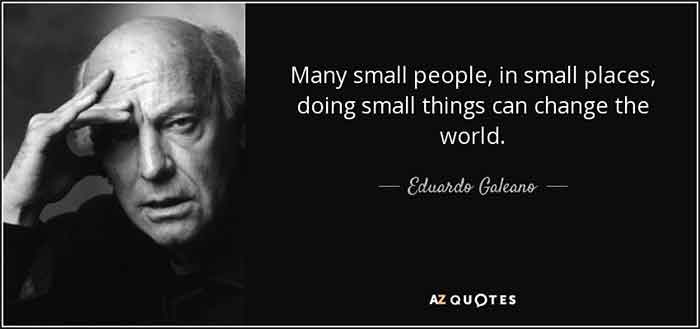
Truth as Interpretation
There can be different versions of truth from what has been already accepted as truth. In 1951, renowned Japanese moviemaker Akira Kurosawa made one of the greatest movies in history, titled Rashomon. No other movie must have better investigated the philosophy of truth and justice than this movie. Rashomon establishes that it is possible for us to perceive things very differently from what others perceive.
Rashomon is based on a plot of rape and murder in which various characters provide contradictory versions of the same incident, based on what they think is the truth. In the movie, the witnesses, suspects, and victim of the rape have drastically different versions of the same incident.
The movie became so popular that we have today a phrase called the ‘Rashomon effect’. Applegarth J et al. defined the Rashomon effect as “how parties describe an event in a different and contradictory manner, which reflects their subjective interpretation and self-interested advocacy, rather than an objective truth.” The Rashomon effect is evident when an event is the cause of litigation. After litigation, one should not be surprised when both parties claim to have won the case.
Jain scriptures around 500 BC also mentions a similar phenomenon when they discuss Anekandwada and Syadwada.
Our interpretation of truth, especially of highly sensitive and political incidents are influenced by our own ideology, religious roots, our position in the class structure, and even our historical or physical locations. So, whoever thinks that they are the custodians of truth may not have absolute rights to the final truth! People who fight and die for truth might be fighting for their convictions and perceptions, rather than for the truth itself!
Truth in Times of Social Media Trial
Due to the wider and cheaper availability of the internet, more and more people are now spending their time on social media. Many people became ‘investigation officers’ and ‘judges’ on various legal cases and indulge in negatively manipulating the accused through gossips, trolls, and threats without any evidence.
Many innocents are being pronounced as guilty even before the courts finally find the truth. Part of it could also be due to people’s disenchantment with the public justice system itself, which is another issue! Biased comments made by irresponsible individuals on social media malign people for life and the victims hardly recover their losses!
A couple of examples are worth considering in this context. Uma Khurana, a teacher in a Delhi school was almost lynched by a mob on the suspicion that she had allegedly forced her students into prostitution. Later, she was acquitted by the court as the allegation is not proven with evidence.
Five years ago, a 50-year-old police officer named Salim in Delhi was “found” drunk by social media, and the video of the officer with his shirt untucked and finding his way around in a train coach went viral. As the train halts at a Station, the cop was seen crashing down to the floor and being helped by fellow passengers.
Thousands of people shared this video and tens of thousands commented against the irresponsible behavior of the police officer. In fact, Salim had earlier suffered a major stroke due to a block in his brain leading to hemorrhage that left him with a paralyzed left side, a contorted face, memory loss, body weakness, leading to communication difficulties. Salim was shifted to a desk job from security duty, due to his illness.
Salim later filed a petition in the Supreme Court, seeking compensation for the wrongful uploading of his video on social media. Though Salim was offered some respite by the court, his damaged image remained as it is.
The Existence of Bullshit
According to Harry G. Frankfurt “Bullshit is speech intended to persuade without regard for truth. The liar cares about the truth and attempts to hide it; the bullshitter doesn’t care if what they say is true or false, but rather only cares whether their listener is persuaded.” Liars at least acknowledge that it matters what is true. By virtue of this, Frankfurt writes, bullshit is a greater enemy of the truth than lies are. In his influential work ‘On Bullshit’ (2005) Harry G. Frankfurt argues that “It is impossible for someone to lie unless he thinks he knows the truth. Producing bullshit requires no such conviction.” People don’t care when their political heroes bullshit, because they think it’s for the common good. Frankfurt argues that bullshitters misrepresent themselves to their audience not as liars do, that is, by deliberately making false claims about what is true. In fact, bullshit need not be untrue at all. Rather, bullshitters seek to convey a certain impression of themselves without being concerned about whether anything at all is true. Understanding the existence of bullshit helps us to interpret what we see and hear from the right perspective.
The Coming of ‘Post-Truth Society’
Post-truth refers to circumstances in which objective facts are less influential in shaping public opinion than appeals to emotion and personal belief. A society where post-truth dominates social interactions is a post-truth society. We might be very well living in a post-truth society!
In the development sector, I am told that donors are no longer moved by research and data for considering funding options. Anecdotal evidence and emotional stories of civil society organizations work better for fundraising. Objectivity is often the casualty when many of the research studies as sponsored by industry bodies. Several WhatsApp groups are believed to have created in India by political parties to spread rumors and lies. People are now seriously doubting the authenticity of psephology and pre-election surveys, as they are also funded by beneficiary political parties.
Manufacturing ‘Truth’ on Social Media
More people spend their time on social media as anybody with a computer and access to the internet can post their opinions on social media and mark them as fact, which may become legitimized through echo-chambers as users validate the story one another. As user networks in social media become echo chambers, one viewpoint dominates over others and there is no scrutiny of claims made by people who post, tweet, or publish on social media.
People in the Post-truth era often ignore fact checks. The authenticity of content in social media is usually judged based on how many views or likes a post gets. This will force users to create an atmosphere that appeals to emotion instead of researched facts.
Reclaiming Truth in Post-Truth Society
Truth is increasingly missing from our world, and we are flooded with Bullshit. Propaganda and manipulated lies are often presented as supreme truth. The credibility of the mainstream media and social media have already been lost. There is a need to reclaim truth for the sake of the survival of humanity as a civilizational entity. Society used to have prophets who alerted people on the loss of values, and ethics. We no longer see real prophets among us. Most of those who claim themselves as prophets are fake gurus, demigods, or profit seekers. If we do not reclaim truth, trust, and love among us, we are bound to perish as a civilization, sooner than later!
(Kandathil Sebastian is a Delhi-based social scientist, novelist, and commentator on social issues.)
IF YOU LIKED THE ARTICLE SUPPORT PEOPLE’S JOURNALISM















































